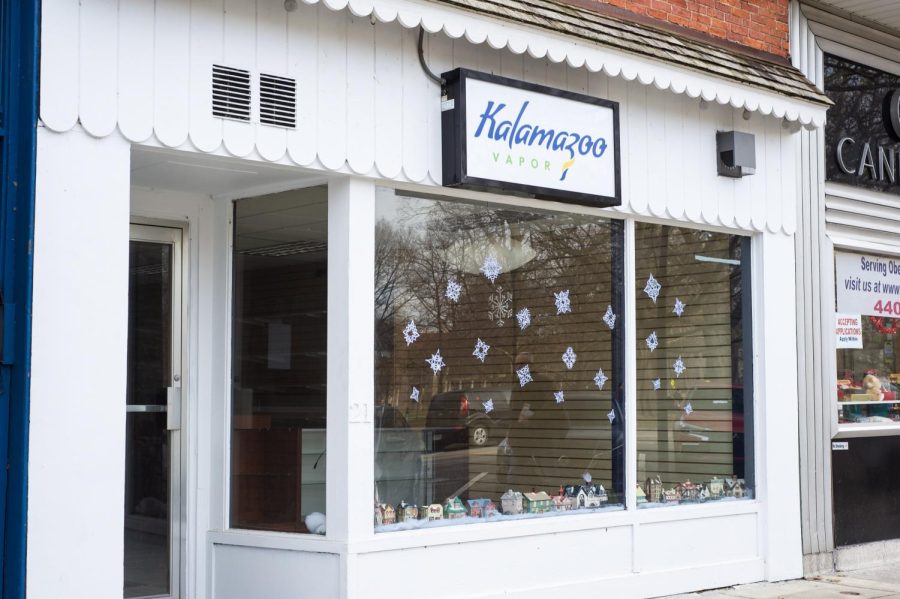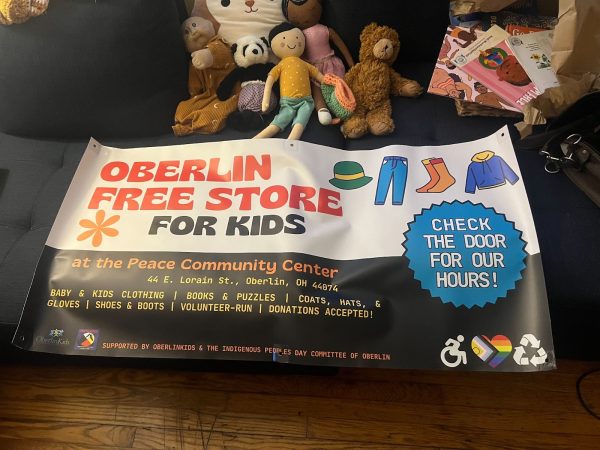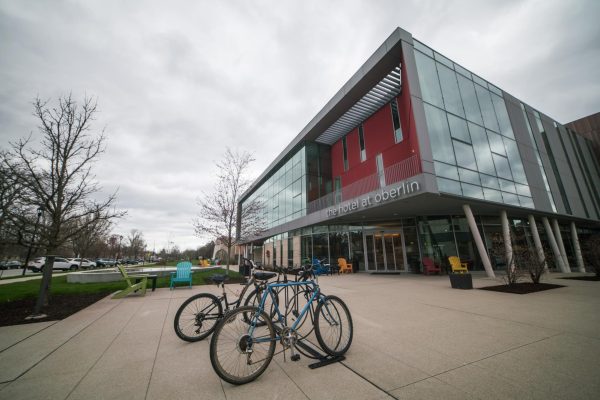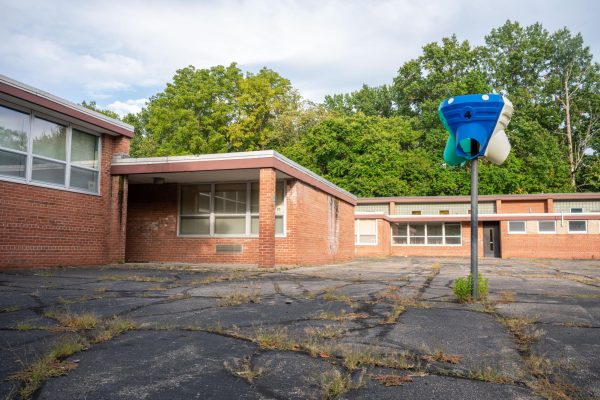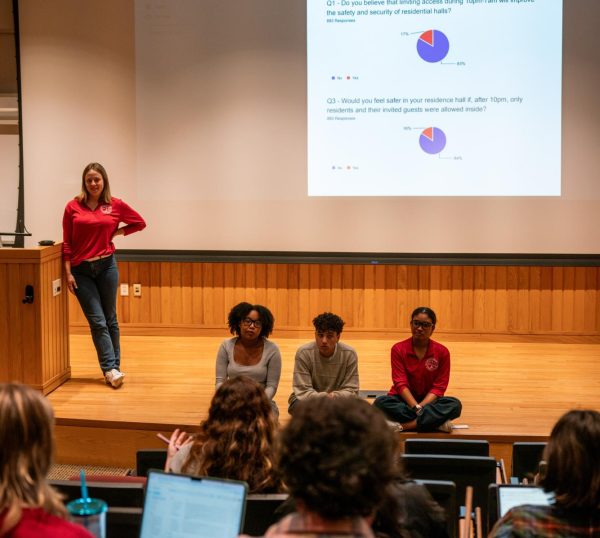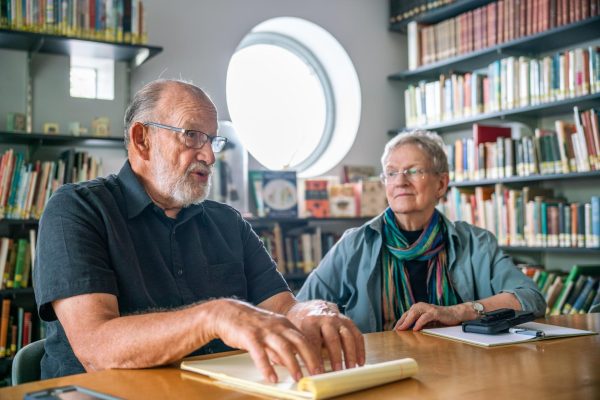Kalamazoo Vapor Closes Oberlin Location After Five Months
Kalamazoo Vapor announced its closure Jan. 23 of this year.
On Jan. 23, Kalamazoo Vapor announced the closure of its Oberlin location, formerly at 21 West College Street. A message sent out to their email list read, “We are sorry to announce that due to lack of business, we have closed our Oberlin location.” The store opened in August 2022, staying in business a total of five months.
“We had great interactions with the community,” Adam Tahan, district manager of Kalamazoo Vapor, said. “It’s not that it was a bad experience, there just wasn’t enough traffic.”
The difficulties Kalamazoo experienced are not unprecedented. Small businesses in Oberlin’s downtown notoriously face competition, especially with the increasing prevalence of major restaurant chains. In the past several years, eight local eateries — including Catrina’s Tacos y Margaritas, Dave’s Cosmic Subs, Black River Cafe, (which recently reopened as a wine bar), Agave Burrito Bar and Tequileria, and Oberlin Kitchen — were forced to shut their doors partially because of the pressures imposed by the pandemic. Executive Director for the Oberlin Business Partnership Janet Haar offered her guidance for any small business looking to open a storefront in Oberlin, aggregated from 10 years of experience connecting local organizations with resources in times of financial strain.
“Here’s what I always tell businesses, especially ones coming into a small, rural, college town: Do your market research first,” Haar said. “That’s going to tell you that there are some fairly lengthy downtimes when you have to depend mostly on the people who live in the community, not the people who come here to go to school.”
According to Tahan, Kalamazoo conducted market research prior to expanding the business into a new town. “We study demographics and then research, like, ‘Are there other shops in town?’” Tahan said. “We just kind of try and figure out what would make sense for opening a location.”
Based on the research it conducted, the company had reason to believe its Oberlin location would get off the ground.
“There’s not a vape shop in Oberlin — and in the surrounding areas, there’s no vape shop,” Tahan said. “We sell devices to help people quit smoking; [Doobie’s Smoke Shop] is selling different products.”
Kalamazoo’s tenure on West College Street was short-lived, despite indicators that there was a lack of supply elsewhere for the service they provided.
“You should not be undercapitalized,” Haar said. “You have to have some money in the bank to support your basic business operations for at least six months or more during the inevitable slow times when you could be operating in the red.”
However, more crucially than the financial safety net that gives bigger businesses a better fighting chance, Haar hammered home the importance of good-faith engagement as a stakeholder in the Oberlin community.
“In a small town like Oberlin, you have to join the community,” Haar said. “Which means you can’t spend all of your time working in the business — you have to also work on it. You’ve got to help people get to know you by passing out your business cards, you’ve gotta have a flyer … you’ve gotta do all of those kinds of things so people get to know you. So if you come in, you’re undercapitalized — meaning you don’t have enough money to take care of you during those slow times — and you don’t get out in the community cause, you’re probably not going to succeed.”
Haar expressed her belief in the need for an economic development program in Oberlin that would guide property owners in choosing businesses best equipped to survive and thrive on their properties. Programs currently underway, such as Downtown Strategies, plan to revitalize Oberlin’s downtown, carry Haar’s hopes for a future of facilitated collaboration between merchants and the owners of the buildings they operate out of. However, no economic development department unique to Oberlin currently exists, and small business owners are often faced with an uphill battle.
“We’re not really sure why there wasn’t enough business,” Tahan said. “There wasn’t enough traffic in the store. Other [Kalamazoo] stores do a lot more business, and we’re trying to be financially responsible.”
Two doors down from Kalamazoo’s now-empty storefront, Doobie’s Smoke Shop has flourished since its opening in 2020, providing an example of a successful smoke and vape shop that, despite Tahan’s insistence otherwise, serves a very similar clientele as Kalamazoo. Doobie’s success can be attributed partially to resources the business has at its disposal operating under the same ownership as the Arb at Tappan Square. The Arb had only opened about a year prior, but its popularity among residents built a loyal customer base and cemented the restaurant’s foundation, with Doobies taking residence in the lower floor at the time. Brittany Campbell, manager of Doobie’s Smoke Shop, recalls how Doobie’s managed to attract customers even when it operated out of the basement of the Arb.
“When I was downstairs, everybody would come in and wait for their sandwiches or whatever and [ask], ‘Oh, what’s going on downstairs?’” Campbell said. “It was an ‘if you know, you know kind of thing.”
Kalamazoo carried vaping equipment that Doobie’s didn’t, and in contrast to Doobie’s, it marketed itself toward individuals interested in switching from cigarettes to nicotine vapes. However, when customers enter Doobie’s and express a desire to quit smoking, Campbell said they are pointed in the direction of products that can help them meet their goal.
“We have hemp cigarettes, and I have turned a lot of students on to hemp cigarettes,” Campbell said. “They’ve gone from cigarettes to vaping to hemp cigarettes, and they come back and they’re not smoking nicotine anymore. [It] makes me really happy. Anytime somebody comes in and they’re kind of waffling on, ‘I’m trying to quit,’ I mention the hemp cigarettes and sometimes they bite.”
In addition to factors including familiarity and simple convenience, there is something intangible about Doobie’s business model that keeps customers coming back.
“I just kind of try and connect with everybody that comes in,” Campbell said. “Most of you guys are far away from home, and everybody’s struggling, and I just try and make it a personal moment with everybody that comes in if I can.”


